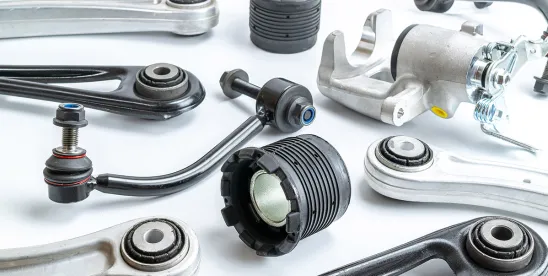This report helps automotive suppliers inform their legal and operational decisions to help address challenges and opportunities.
Key Developments
-
Foley & Lardner partners will cover federal legislative and regulatory developments impacting autonomous and electric vehicles, as well as semiconductor and other supply chain challenges, at the OESA Mobility Supplier Forum on August 25, 2022, at SRI International in Silicon Valley. OESA members and guests can register HERE to attend.
-
S&P Global Mobility projects that 2022 global light-vehicle production will reach 80.8 million units while noting a near-term recovery of demand in Greater China is balanced against broader indications of “deteriorating economic conditions.”
-
U.S. new light-vehicle inventory was estimated at 1.12 million units at the end of June, representing a 38 days supply, according to an analysis from Cox Automotive.
-
As part of an effort to mitigate cost burdens, Reuters reports Toyota will postpone plans to unilaterally request lower prices from suppliers this year.
-
Volkswagen Group announced the departure of CEO Herbert Diess following a vote by the supervisory board. Diess will be replaced by Porsche CEO Oliver Blume.
-
Bosch intends to invest 3 billion euros in its semiconductor business by 2026, in areas including testing, research and production.
-
The U.S. Senate may vote this week on legislation to provide funding for the domestic semiconductor industry, as part of a broader package intended to increase the nation’s competitiveness with China.
-
Electric vehicles and low emissions technology:
-
A Foley & Lardner blog post shares key takeaways involving the upward trend of hydrogen fuel cell patent applications.
-
Ford may eliminate 4,000 to 8,000 salaried workers to position the company for the transition to electric vehicles, according to unconfirmed reports in The Wall Street Journal and Bloomberg.
-
According to an analysis by the Center for Automotive Research, automakers have announced $24 billion in EV-related investments in the first five months of 2022, which is nearly double the amount for the same period last year.
-
Ford announced details of its battery capacity plan, including that it has secured 100% of the battery cell capacity required to achieve a production target of 600,000 EVs in 2023, and 70% of the required capacity to produce 2 million EVs by 2026.
-
BloombergNEF predicts global battery prices will rise this year for the first time in over a decade, increasing slightly to an average of $135/kWh from $132/kWh in 2021, according to data excerpted in Utility Dive. The increase results from supply chain challenges, as well as inflation and rising commodity costs.
-
Market Trends and Regulatory
-
GM and Ford petitioned NHTSA to obtain temporary exemptions for the inclusion of certain types of controls in automated driving system-equipped vehicles intended for limited uses such as ride-sharing and delivery services.
OEMs/Suppliers
-
Continental will invest over $40 million to build a hydraulic hose plant in San Luis Potosi, Mexico, with the intent to begin production in 2024.
-
The global semiconductor shortage is described as “more acute” in China because the nation relies “almost entirely” on chips imported from Taiwan, Europe, and the U.S., according to a report in Reuters.
-
Stellantis will terminate a joint venture with Chinese automaker GAC (which has been producing Jeep vehicles) due to a decision to pursue an “asset-light” approach in the nation, as well as a “lack of progress” with previous plans to pursue a majority share in the venture.
-
Semiconductor manufacturer SkyWater Technology Inc. announced plans to invest $1.8 billion for a chip research and fabrication facility in Indiana. SkyWater serves a range of markets, including the automotive industry.
Connected/Autonomous Vehicles and Mobility Services
-
ABI Research projects last-mile delivery revenue will increase from $70 million in 2022 to $670 million in 2030, according to estimates excerpted in Material Handling & Logistics. Growth opportunities are expected for autonomous delivery vehicles as companies increase scale amid growing customer interest in low-touch, quick delivery.
Electric Vehicles and Low Emissions Technology
-
The U.S. Postal Service announced at least 40% of its new Next Generation Delivery Vehicles (NGDVs) and commercial off-the-shelf (COTS) vehicles will be BEVs, representing a significant increase from previous targets outlined in its multi-billion-dollar initiative to replace its fleet.
-
Amazon began deliveries using custom electric delivery vans from Rivian in over a dozen cities, with the goal to use the vehicles in over 100 cities by year-end.
-
Walmart signed an agreement to purchase 4,500 electric delivery vans from Canoo, with the option to purchase up to 10,000 units. Walmart is scheduled to receive the first deliveries of Canoo’s Lifestyle Delivery Vehicle in 2023.
-
Panasonic will invest up to $4 billion to build a new EV battery plant in De Soto, Kansas, which will employ up to 4,000 workers. The company received a total incentive package valued at $829.2 million.
-
Redwood Materials plans to invest $3.5 billion in a new battery materials factory outside of Reno, Nevada. The company has EV battery partnerships with automakers including Volkswagen and Toyota.
-
GM is partnering with EVgo and Pilot to install 2,000 fast chargers at up to 500 Pilot and Flying J locations, and the first chargers will be operational early next year.
-
Federal Highway Administration officials and emergency responders quoted in Transport Topics highlighted the need for increased training to effectively extinguish EV battery fires.
-
The Wall Street Journal reports warehouse developers are experiencing more requests to install charging stations at distribution centers, signaling growing interest in electrification among logistics companies.
-
The New York Times featured a number of companies which are beginning to increase production to expand the testing process for next-generation battery cells designed to improve charging speed and vehicle range.
-
The U.S. Energy Department intends to provide a $2.5 billion conditional loan to a joint venture between GM and LG Energy Solution to help fund upcoming battery cell manufacturing facilities in Ohio, Tennessee and Michigan.




 />i
/>i

